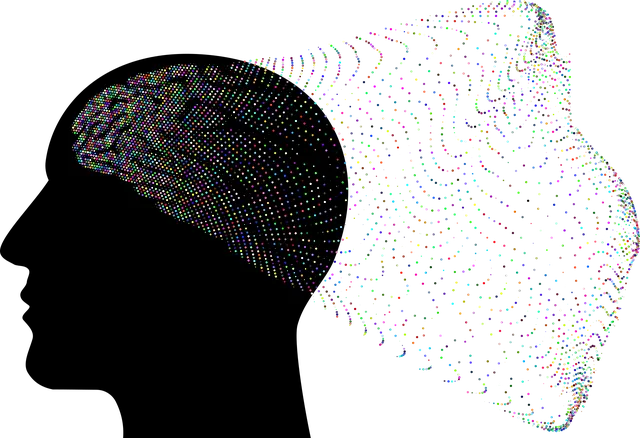The Kaiser Permanente Mental Health Appointment Center in Westminster employs the Real-Time Feedback Model (RFM) and evidence-based practices to enhance patient care through tailored interventions. Their structured yet adaptable resilience program includes Mindfulness Meditation, Social Skills Training, and Emotional Intelligence techniques, empowering individuals with tools for emotional durability. Success is measured using Recovery-Focused Methodology, tracking mental well-being improvements and ensuring the center's initiatives align with evolving client needs.
“Uncovering the power of resilience is a key strategy for fostering well-being, especially in healthcare settings. This article explores the implementation of RFM (Resilience, Flexibility, and Mastery) programs at the Kaiser Permanente Mental Health Appointment Center Westminster. We provide a comprehensive guide on how these exercises can be integrated, offering a step-by-step approach to enhance patient mental health. Additionally, we delve into measuring success through evaluation methods, showcasing the impact of RFM initiatives at KP WHMACC.”
- Understanding RFM and Its Role at Kaiser Permanente Mental Health Appointment Center Westminster
- Implementing Resilience-Building Exercises: A Step-by-Step Guide
- Measuring Success: Evaluating the Impact of RFM Programs at KP WHMACC
Understanding RFM and Its Role at Kaiser Permanente Mental Health Appointment Center Westminster

At Kaiser Permanente Mental Health Appointment Center Westminster, understanding the Real-Time Feedback Model (RFM) is crucial for fostering a resilient environment. RFM serves as a powerful tool to gauge patient engagement and satisfaction during their mental health appointments. By collecting real-time data, healthcare professionals can identify areas of improvement and tailor interventions accordingly, ultimately enhancing the overall quality of care. This approach aligns with the center’s commitment to not just treating symptoms but also empowering patients with strategies for burnout prevention and inner strength development.
The implementation of RFM goes beyond individual patient experiences; it contributes to a broader Mental Health Policy Analysis and Advocacy initiative within the organization. By continuously assessing and improving services, Kaiser Permanente can advocate more effectively for evidence-based mental health practices, ensuring that policies reflect the evolving needs of its diverse patient population. This holistic approach underscores the center’s dedication to transforming lives and creating a resilient community centered around mental well-being.
Implementing Resilience-Building Exercises: A Step-by-Step Guide

Implementing Resilience-Building Exercises: A Step-by-Step Guide
At the Kaiser Permanente mental health appointment center in Westminster, we understand that building resilience is a crucial aspect of overall well-being. Our approach involves a structured yet adaptable process to ensure maximum impact for each individual. The journey begins with an initial assessment to identify specific areas where resilience can be strengthened. This may include discussions around stress management, coping mechanisms, and personal goals. Once identified, we customize a plan that incorporates various exercises tailored to the individual’s needs.
The core of our program includes practices such as Mindfulness Meditation, which helps individuals cultivate present-moment awareness and emotional regulation. Social Skills Training is another vital component, focusing on enhancing communication, empathy, and social connections. Additionally, we incorporate Emotional Intelligence techniques to help clients better understand and manage their emotions, fostering a sense of control and resilience in various life situations. Through regular sessions and ongoing support, our goal is to empower individuals with practical tools that promote mental agility and emotional durability.
Measuring Success: Evaluating the Impact of RFM Programs at KP WHMACC

Measuring success is a vital component when implementing resilience-building exercises and RFM (Recovery-Focused Methodology) programs at institutions like Kaiser Permanente Mental Health Appointment Center Westminster (KP WHMACC). The impact of these initiatives goes beyond attendance or participation; it’s about quantifying improvements in clients’ mental well-being, coping abilities, and overall resilience.
By evaluating the effectiveness of RFM programs, KP WHMACC can assess how these exercises translate into tangible benefits for individuals seeking mental health support. This includes tracking enhancements in stress management skills, increased confidence boosting strategies, and improved coping skills development among participants. Regular assessments and feedback mechanisms allow for continuous improvement and ensure that the center’s initiatives align with the evolving needs of its clients.
The implementation of Resilience, Flexibility, and Mastery (RFM) exercises at the Kaiser Permanente Mental Health Appointment Center in Westminster has proven to be a transformative strategy. By integrating these resilience-building activities into their programs, the center has successfully fostered a more robust and adaptable patient population. The step-by-step guide outlined in this article provides a clear framework for other healthcare facilities to adopt similar initiatives, ultimately enhancing patient outcomes and overall well-being at Kaiser Permanente mental health centers across the board.


